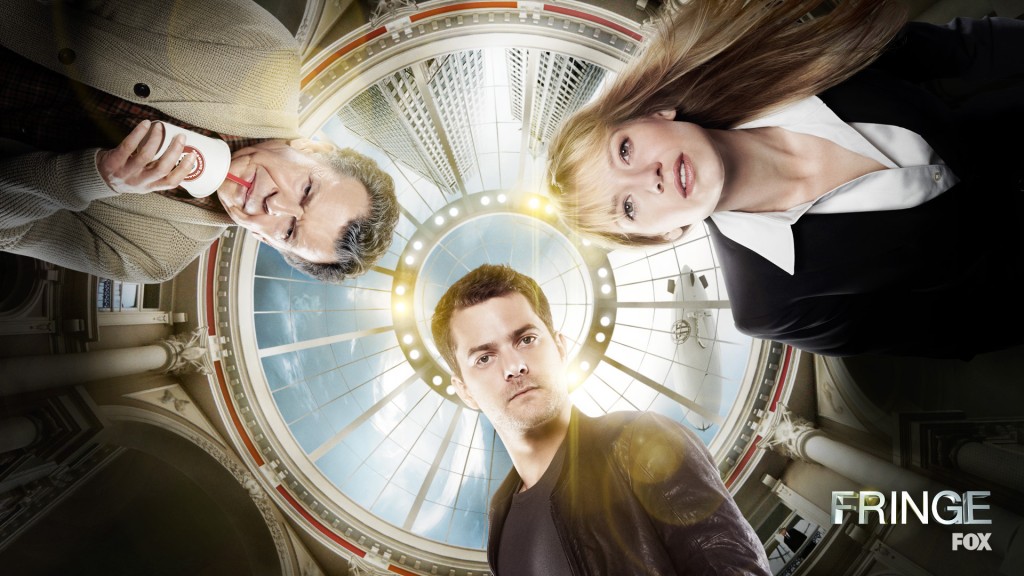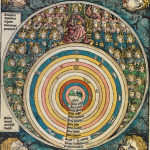“Some things are not ours to tamper with; some things belong to God.”
That’s a line from the Season 4 episode of the science fiction TV series, “Fringe,” called “Novation,” but it reflects a theme that’s run throughout the show’s history.
 Created by “Lost’s” J.J. Abrams, “Fringe” revolves around the FBI’s Fringe science investigation team led by Agent Olivia Dunham (Anna Torv), Dr. Walter Bishop (John Noble) and his son, Peter Bishop (Joshua Jackson). About 20 years ago, Walter was a ‘mad scientist’ type who performed experiments on children, using them as guinea pigs to push science beyond any previously-held human and moral boundaries. He felt that anything that can be accomplished should be accomplished regardless of the laws of nature or the dignity of human beings. Walter pushed that idea even further when he discovered a parallel universe made up of the same people alive in this world, but in slightly-altered circumstances.
Created by “Lost’s” J.J. Abrams, “Fringe” revolves around the FBI’s Fringe science investigation team led by Agent Olivia Dunham (Anna Torv), Dr. Walter Bishop (John Noble) and his son, Peter Bishop (Joshua Jackson). About 20 years ago, Walter was a ‘mad scientist’ type who performed experiments on children, using them as guinea pigs to push science beyond any previously-held human and moral boundaries. He felt that anything that can be accomplished should be accomplished regardless of the laws of nature or the dignity of human beings. Walter pushed that idea even further when he discovered a parallel universe made up of the same people alive in this world, but in slightly-altered circumstances.
When his young son, Peter, died of a mysterious disease in our universe before Walter could administer a cure, he crossed into the parallel one to bring that Peter back to this world to save him. Though he had planned to return the boy to his world, Walter was never able to let go of his beloved son a second time, and wound up keeping him here and raising him. The act of Walter’s crossing universes, however, tore a hole in the fabric of the other world which has since resulted in its slow but steady deterioration. Its residents have been trying to get revenge on this world ever since.
The moral and emotional repercussions of all he had done also led Walter to go insane, spending years of his life locked in a mental institution. That changed four years ago when the government started encountering cases based on Walter’s old experiments. Humbler, chastened, but still a little crazy and brilliant, Walter was released into Olivia’s and Peter’s custody to help the government solve seemingly unexplainable mysteries.
“Fringe” is not a show for the faint of heart or stomach. It veers into gory territory at times, and its plotlines can seem a little ‘out there.’ Yet it’s a series that deals with a lot of philosophical and theological themes that are relevant to our world today if we have the eyes to see them. The quote at the start of this article, for instance, is spoken by a scientist who had been working on cellular cloning experiments that would allow scientists to replicate the DNA of dead people, essentially recreating their bodies exactly as they were (biologically, at least) and bringing them back to life. While this ability to ‘raise the dead’ sounds like an impressive scientific innovation that could give us the illusion of living forever, the episode acknowledges that this is a power that human beings shouldn’t hold. It leads to us thinking of ourselves as God, as being above other human beings and even the universe as a whole. Powerful men who think of themselves as above everything and everyone tend to be responsible for lots of genocides (See Hitler, Stalin, etc.)
Fellow Patheos blogger Mark Shea describes these kinds of scientific advances as starting with the question, “What could it hurt?” After all, progress is good! All these ancient principles people subscribe to about human beings being special in the eyes of God, about respecting each others’ inherent dignity because we’re made in the image and likeness of God – those ideas are just holding us back from great advancements that can make us and our world better! And the notion of God is outdated anyway, so there’s really nothing to hold us back. But years later when the negative repercussions have been unleashed, Shea says the same people ask, “How were we supposed to know?”
In last Friday’s episode of “Fringe,” entitled “A Better Human Being,” Peter and Olivia are tracking a group of killers that a young man claims to share some some kind of mental telepathy with. He can see what they’re doing even though he plays no part in it. When it’s discovered that the young man was the result of an in vitro fertilization treatment, Peter and Olivia visit the doctor who performed the procedure. Now older and wiser, he makes his home in an assisted-living facility. The following exchange occurs:
Doctor: The work I was doing at my clinic was merely a means to an end, a vehicle for my real experiments. Genetic manipulation. The babies that I gave life to, I had altered their DNA. I was attempting to make a better…
Olivia: A better what?
Peter: A better human being.
Doctor: Are you familiar with recombinant DNA?
Peter: A DNA sequence created in a lab using genetic material from different species.
Doctor: Yes. I used that process on my subject embryos that I implanted.
Olivia: Were your patients aware of what they were signing up for?
Doctor: I promised them successful pregnancies and healthy babies. That’s what I gave them. I attempted to reintroduce abilities that we humans have long since evolved away from: the hard-wired instincts that we share with other animal species…Can you imagine that? The hubris of trying to improve upon God?
It took several dead people, but this doctor finally wound up in the “How were we supposed to know?” phase.
While issues of parallel universes may seem beyond the pale, cloning human beings and combining genetic material from different species are all very real areas of modern science. Sometimes they’re reported in the news as impressive advances or as being controversial. But no matter how controversial they are, they still go on. And just like in the case of the aforementioned doctor, they can lead to us viewing other human beings as disposable pawns, easily manipulated to achieve various ends. The inherent dignity of every human person is disregarded in the pursuit of knowledge and power.
Like any TV show, “Fringe” is meant to entertain and engage its audience – two things it does very well. But it also deserves credit for confronting us with questions that need to be asked in our era of rapid scientific advancements – and for being willing to say that there should be limits to the types of advancements we pursue. The fact that the show integrates issues of substance with compelling stories, vividly rendered characters, and unexpected comedy makes it must-see viewing in my book.
“Fringe” airs on Fox on Friday nights 9E/8C.
UPDATE: Patrick Archbold shares his thoughts on Christian symbolism in “Fringe” here.















